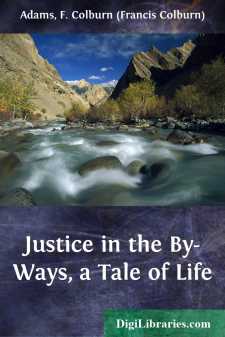Categories
- Antiques & Collectibles 13
- Architecture 36
- Art 48
- Bibles 22
- Biography & Autobiography 813
- Body, Mind & Spirit 142
- Business & Economics 28
- Children's Books 15
- Children's Fiction 12
- Computers 4
- Cooking 94
- Crafts & Hobbies 4
- Drama 346
- Education 46
- Family & Relationships 57
- Fiction 11829
- Games 19
- Gardening 17
- Health & Fitness 34
- History 1377
- House & Home 1
- Humor 147
- Juvenile Fiction 1873
- Juvenile Nonfiction 202
- Language Arts & Disciplines 88
- Law 16
- Literary Collections 686
- Literary Criticism 179
- Mathematics 13
- Medical 41
- Music 40
- Nature 179
- Non-Classifiable 1768
- Performing Arts 7
- Periodicals 1453
- Philosophy 64
- Photography 2
- Poetry 896
- Political Science 203
- Psychology 42
- Reference 154
- Religion 513
- Science 126
- Self-Help 84
- Social Science 81
- Sports & Recreation 34
- Study Aids 3
- Technology & Engineering 59
- Transportation 23
- Travel 463
- True Crime 29
Manuel Pereira
Description:
Excerpt
INTRODUCTION.
OUR generous friends in Georgia and South Carolina will not add among their assumptions that we know nothing of the South and Southern life. A residence of several years in those States, a connection with the press, and associations in public life, gave us opportunities which we did not lose, and have not lost sight of; and if we dipped deeper into the vicissitudes of life and law than they gave us credit for at the time, we trust they will pardon us, on the ground of interest in the welfare of the South.
Perhaps we should say, to support the true interests of the South, we should and must abandon many of those errors we so strenuously supported in years past; and thus we have taken up the subject of our book, based upon the practical workings of an infamous law, which we witnessed upon the individual whose name forms a part of the title.
Imprisoning a shipwrecked sailor, and making it a penal offence for a freeman to come within the limits of a republican State, whether voluntarily or involuntarily, seems to be considered commonplace, instead of barbarous in South Carolina. This may be accounted for by the fact that the power of a minority, created in wrong, requiring barbarous expedients to preserve itself intact, becomes an habitual sentiment, which usage makes right.
This subject has been treated with indifference, even by the press, which has satisfied itself in discussing the abstract right as a question of law, rather than by disclosing the sufferings of those who endure the wrong and injustice. When we are called upon to support, and are made to suffer the penalty of laws founded in domestic fear, and made subservient to various grades of injustice, it becomes our duty to localize the wrong, and to point out the odium which attaches to the State that enacts such laws of oppression.
A "peculiar-institution" absorbs and takes precedence of every thing; its protection has become a sacred element of legislative and private action; and fair discussion is looked upon as ominous, and proclaimed as incendiary. But we speak for those who owe no allegiance to that delicate institution; citizens to all intents and, purposes (notwithstanding their dark skins) of the countries to which they severally belong; peaceable persons, pursuing their avocations, to provide a respectable maintenance for their families, and worthy of the same protective rights claimed by the more fortunate citizens of such countries. In doing this we shall give a practical illustration of the imprisonment of four individuals in South Carolina, and ask those who speculate in the abstract science of State sovereignty, to reflect upon the issue of that lamentable injustice which inflicts punishment upon persons guiltless of crime. We prefer to be plain, and we know our Southern friends will not accuse us of misconstruction, for we have their interests at heart, as well as the cause of humanity, which we shall strive to promote, in spite of the struggles of modern barbarism, seeking to perpetuate itself....





